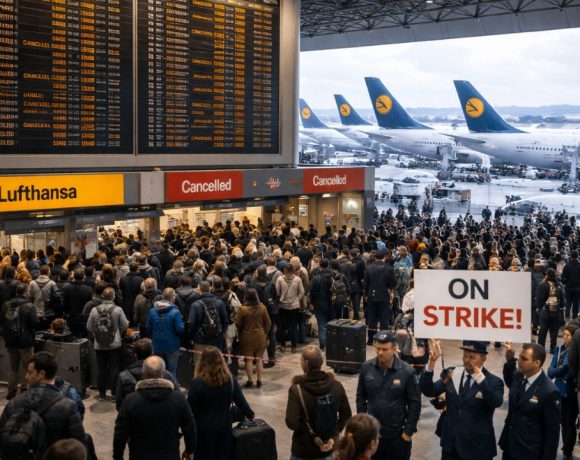
A 46-year-old woman has died in Barcelona after being struck by debris from a warehouse roof torn off by powerful winds, as the eighth major storm of the year swept across Spain and Portugal, according to officials. The woman succumbed to her injuries in hospital early Friday. Repeated bouts of heavy rain, strong gales, snow, and thunderstorms have caused widespread damage, forcing mass evacuations and disrupting daily life across the Iberian Peninsula.
Spain’s Agriculture Minister Luis Planas described the succession of storms as “truly extraordinary,” warning that authorities must assess whether such events could become more frequent. Around 14,000 hectares of farmland—including berries, citrus fruits, and olives—have already been damaged. Data from AEMET shows Spain has received 38% more rainfall than average since October, heightening concerns over infrastructure resilience and agricultural losses.
In Portugal, authorities in the historic city of Coimbra warned of possible severe flooding along the Mondego River, with up to 9,000 residents at risk of evacuation as reservoirs neared capacity. Schools and universities were closed, and similar measures were taken in parts of southern Spain, including Andalusia, where thousands have already been displaced. Forecasts also warned of intense rainfall in areas such as Grazalema, underscoring the continued threat of flooding and landslides.
Pic courtesy: google/ images are subject to copyright









